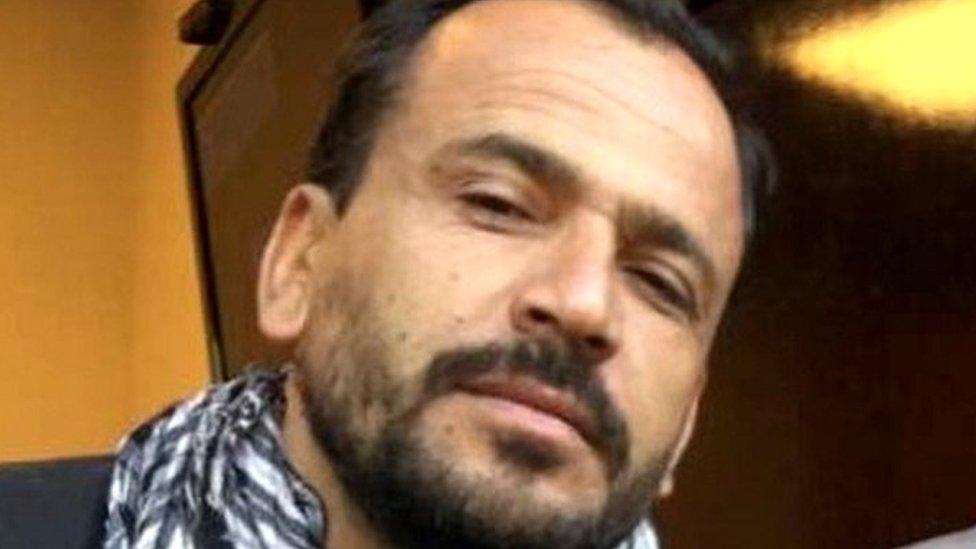Kabul blast: Protester killed near bomb site
- Published
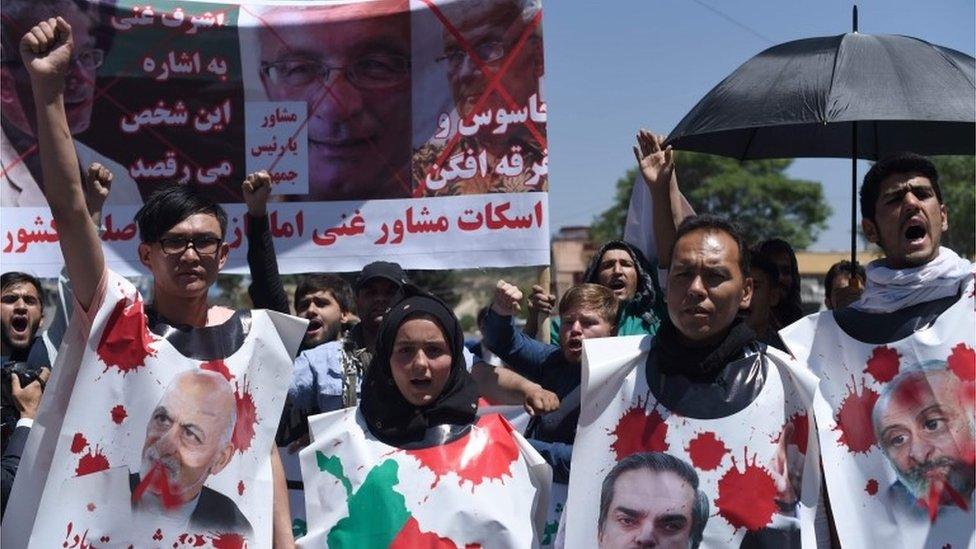
Many Afghans accuse the government of failing to tackle the militants
Police in the Afghan capital, Kabul, have opened fire on anti-government protesters, killing at least one person, officials say.
The authorities moved in early on Tuesday to break up a makeshift protest camp in the city centre. Several others were injured.
Protests began almost three weeks ago, after a massive vehicle bomb in the city centre left more than 150 dead.
Demonstrators accuse the government of failing to provide security.
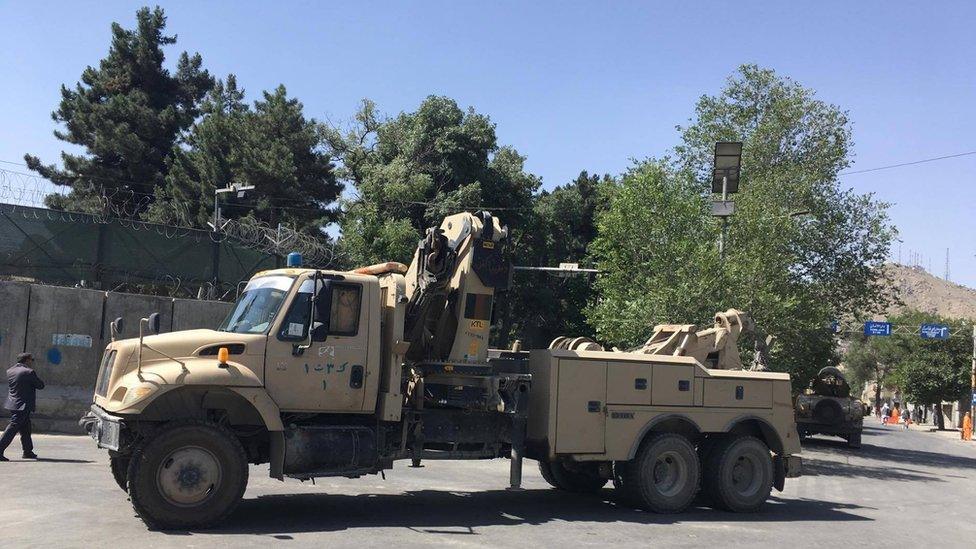
Police moved in to demolish the camp early on Tuesday
Pledging an investigation into the overnight violence, Afghan Chief Executive Abdullah Abdullah said one person been killed and six wounded.
"These kinds of incidents damage the trust between the government and the people," he said.
Demonstrators put the number of dead at two. Street clashes broke out after the authorities demolished the camp. Police responded with live rounds, AFP news agency reports.
Afghan intelligence officials have blamed the 31 May bomb attack on the Haqqani network, a Taliban affiliate with alleged support from Pakistan.
The Taliban and the Haqqani group denied any involvement. Islamabad strongly rejected the claim.

The city centre blast was the deadliest militant attack in Afghanistan since 2001
The bombing sparked anti-government protests just days later in which four people were killed, as police used tear gas and fired bullets into the air to keep crowds at bay.
Three suicide bombers then attacked the funeral at the weekend of one of those killed in the protests, killing at least seven people.

Who were the protesters? Analysis by Karim Haidari, BBC Afghan, Kabul
The Kabul protest began peacefully the day after the bombing three weeks ago. Demonstrators demanded the execution of Taliban detainees and the sacking of senior security officials.
Soon however fierce critics of President Ashraf Ghani, many of them members of Jamiat Islami which has a 50% stake in the government, took over the protest and violence ensued. They wanted the government dismantled altogether. Police called them rioters who wanted to storm the presidential palace.
Some members of Jamiat accuse President Ghani of bigotry and favouritism, and of micromanaging the entire government. They want his right hand man, security adviser Hanif Atmar, removed.
They had been bottling up their revulsion against the government for bringing Gulbudin Hikmatyar, Jamiat's rival since the 1990s, to Kabul after successfully negotiating a peace deal with him.
Jamiat members see his backing of President Ghani as their loss.

Builders work to repair Kabul's bomb-struck Green Zone
Many Afghans accuse the government of failing to tackle the militants adequately.
More than a third of the country is now said to be outside government control.
Earlier this year, a top US commander warned of a "stalemate" in the fight against the Taliban unless more foreign troops were committed.
US President Donald Trump is believed to be assessing his options.
- Published3 June 2017
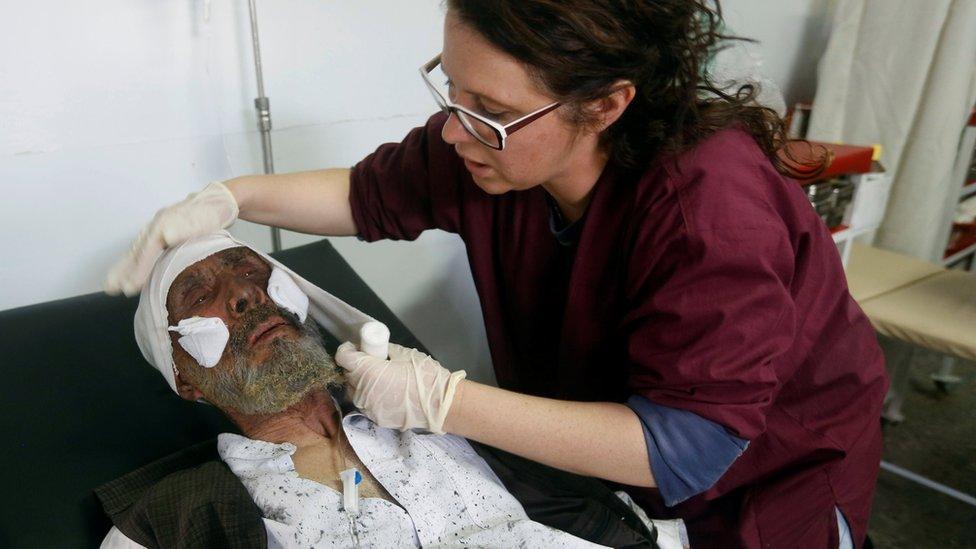
- Published31 May 2017
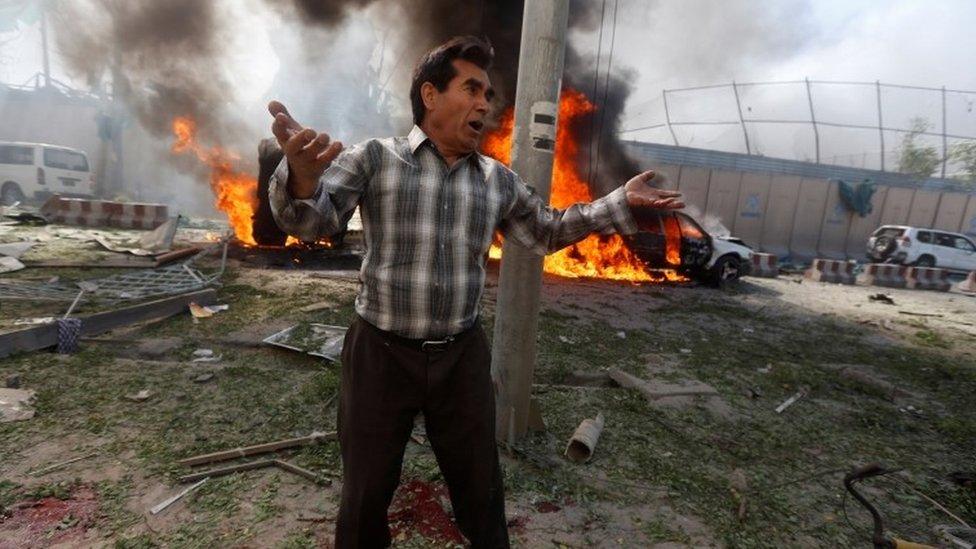
- Published2 June 2017
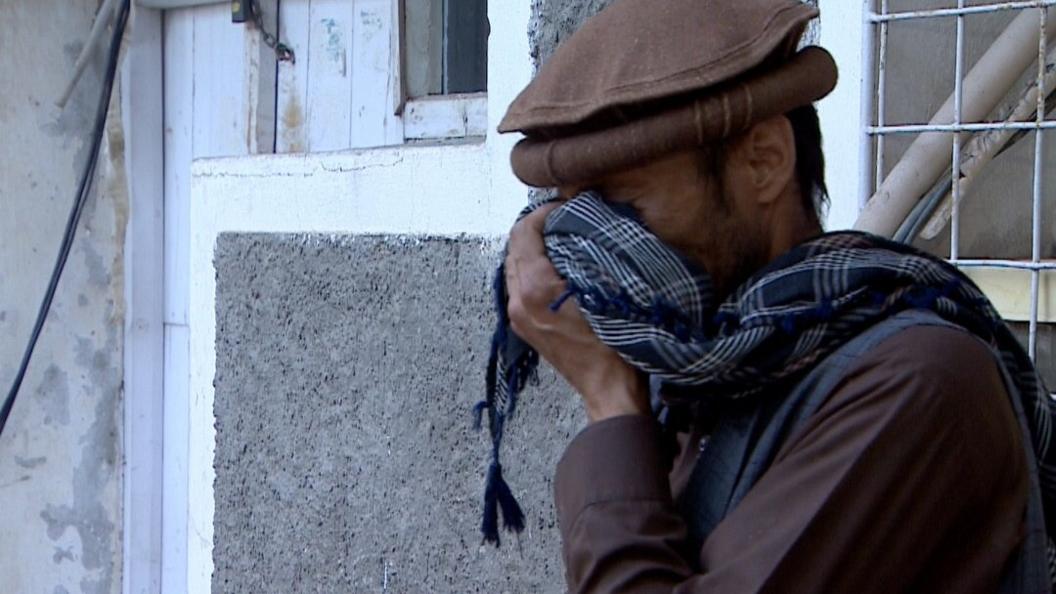
- Published1 June 2017
